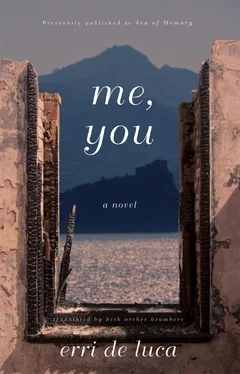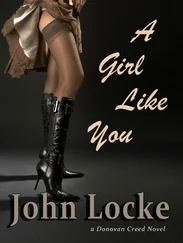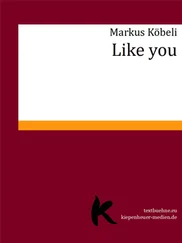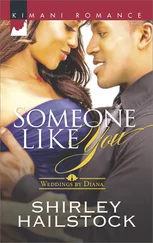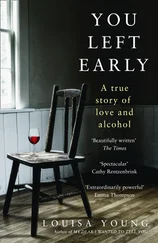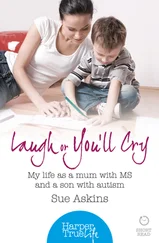“Even if all this is true and I was no more than an unlikely means of encounter, I felt love, Chaie, vast love, a reaching out over time. I experienced the ages that await me before I attain the affection and tenderness of an adult for a little daughter. You and your father gave me a purpose in this world, me, a bewildered kid, muted by awkwardness. You called me Tateh, Tatehle , the name you loved most in this world. So what if I missed out on your kisses which lasted no longer than a dive? I was there to kiss your forehead, give you my arm, buy you cotton candy, carry your suitcase. Now I want you to leave, to forget, to settle safely in some part of the world. I won’t ask for an address in order to write to you, I won’t leave you mine. We end here. We will not see each other again. I have to finish my summer, the one that changed my features. Soon I will go back to my home, to the city, I will give up my studies and find some kind of job. During this summer you liberated me. I can see my life from a height now, precisely on this day when I am losing you and the sirocco is blocking out even the island right in front. I can see myself out there alone, in a crowd that won’t be festive. I see myself there all alone. Words of revolt, more blinding than this wind, are taking shape.
“On this island I learned freedom from the closed life of the city, pitiful freedoms of a body finally out in the open. The two of you have implanted love in my flesh, and are tossing me into the world like a rolling ball. Within love there is also anger, the sudden movement of getting up from a chair, as you showed me yourself. You called me outside, Chaie. Only you could have done that, only you whose name is life.”
The wind carried off my words. I don’t know if she heard them, if she wanted to hear them. She took my free arm and held it close to her side. We walked slowly with the wind that came from the sea. My skinny body was not enough to shelter her.
“You really put nothing in this suitcase.”
She, stopped for a moment, then, with a metallic ring, a silver wire in her throat, she finally said, “I think we’re very brave not to cry.”
You had already used up every drop. I was awaiting a fire in the depth of the night of your departure. Not even the sirocco, which makes eyes tear, could squeeze a drop out of us.

We went unhurried toward the departure, our hips pressing close, our legs touching. She set the pace, my barefoot stride adjusting to her closed city shoes. I could have walked on and on, the island would not have been big enough for me, nor the day; time itself would not have been long enough. My blood pulsed to the cadence of her steps, my breath came with their beats. I brushed my head against her scarf.
“Are we in step like this?” she asked.
“Very much so, as though our hearts were directing our feet. We form a single unit all the way to the port.”

The U of the port appeared behind a curve and I told her that it was a volcanic lake dug by the Bourbons to the sea, that the island bubbled underneath with magma, that it healed sicknesses, leaving the body grateful. Sighting the boat, the words of a tour guide began tumbling out of my mouth, along with recommendations for preventing seasickness. I stopped babbling only when Daniele startled us from behind.
“From the back you look like a soldier with four legs, side by side in parade formation.”
Taken by surprise, we stopped, smiling as we faced him, and he jokingly added, “At ease.” Then we moved apart, breaking the minimal rank of two.
I went to buy the tickets. When I came back, Caia took off her glasses and untied her scarf. Her eyes were red but dry like mine. She took my hands and placed them at her temples.
“When I left my father the last time, at a train, I was afraid. I’m afraid now too, but for you.”
I placed a kiss on her forehead, my hands burning with energy.
“Ciao, Tateh.”
“Addio , Chaiele.”
“ Ciao , kid.”
“ Ciao , life. Don’t worry about me, I’ll be following the path you set me on.”
Her eyes fell on my bony feet, sticking out of my jeans, and the trace of a smile appeared in her breath. She put the glasses and the scarf back on and turned toward the boat.
Daniele turned around, shook my hand like a good friend, took Caia’s suitcase, and went up to her. She started moving toward the gangplank without looking back. I stayed there until the stern disappeared beyond the lighthouse, behind the pines. My hands were hot with power and I felt a violent impulse to move, to act. The sirocco was gaining force. Generally, it wrapped me in indolence; this time, it unleashed a tarantella in my blood. I turned my back to the port and the wind grabbed me by the shoulders, pushing me forward, and in its hot breath I began to run. Caia was no longer on one arm and her suitcase on the other. I was light, restraining the soles of my feet so as not to lengthen my stride too much. I was running uphill. I hadn’t run for some time and I was astounded by how agile, how fast I was.
I stopped at home to make sure my things were ready. Then I joined Nicola at the beach. He had not gone out to sea.
“It lasts three days, this wind. All we can do is put out some traps in the bay and hope for octopus.”
I picked up one of the traps and looked at it without saying much. In every trap for fish there is a way our, but the fish don’t find it. Looking at that simple device, I felt like a fish, incapable of figuring it out.
I looked at the heaving sea. I saw Caia’s ferry, which had not attempted to enter the Procida channel because it was too rough and had made a detour farther out, passing in front of the fishermen’s beach. I saw the prow pitching and rolling. Caia was surely remembering to hold on tight and keep her eyes focused straight ahead so as not to vomit, as I had suggested. Daniele was there to help her.
“Daniele is on that ferry returning to the city,” I pointed out to Nicola.
“Better today, tomorrow will be worse,” he replied.
The boat was beached. I touched it with my palm. The wood was smooth from the salt and the yearly painting, and the oars had carved a groove near the stem of the oarlock at the point of friction. The tiller of the rudder was dark where the hand held it. Every piece showed wear, handling, softening, rounding from use. I slid my hand along the rim of the bow.
“Do you polish the boat?” I asked with a feeling of tenderness.
“As you can see, the wood has its grain. When we cut it to make planks we always respect that. If it’s cut against the grain, the wood warps, it rebels, and so much so that in the end it splits. Even seasoned wood is like that, it’s worked with the grain. A boat is polished along the direction of the wood’s grain. It’s rubbed from bow to stern, the way the sea does it.”
“I’m stroking it because the season is over. I won’t be coming fishing anymore.”
The wind rose from the sea, coming from Capri and hitting our shore of the island with force.
“How do you feel about the sirocco?” I asked.
“It’s the worst wind. It changes the face of the island. It blows away a beach on one side and carries it over to the other. The sirocco is not a wind, it’s a fury. The sky disappears, hot air hits the head, preventing it from reasoning. One should not conceive children when the sirocco blows, or make decisions. It ignites fires. It makes the bell ring, do you hear it?”
A dour peal rose on the current of the wind and weakly reached the beach. “It’s a furious wind.”
Читать дальше
